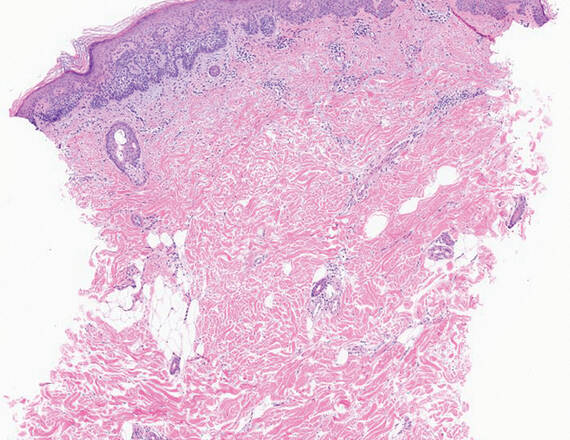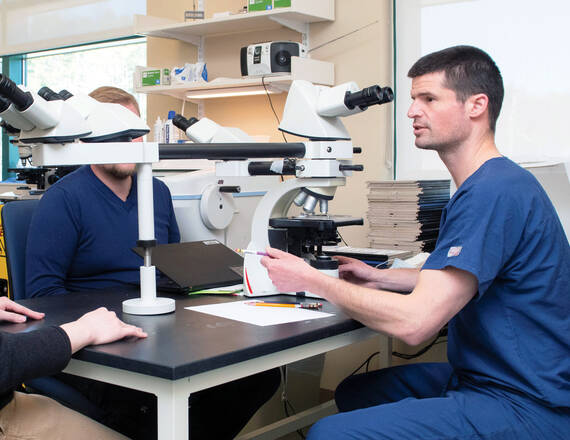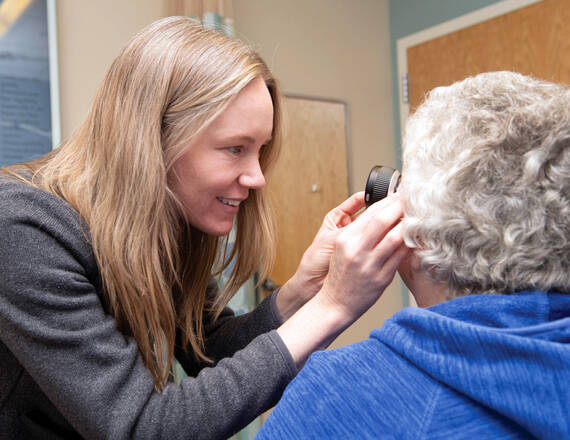What role does the skin microbiome play in cancer progression?
The death of singer/songwriter Jimmy Buffett from Merkel cell carcinoma thrust this rare and aggressive form of skin cancer into the spotlight. Lurking in its shadows is a common (and typically harmless) virus that lives on the skin, which appears to be the leading cause of the disease.

“That’s one of the few skin cancers linked specifically to a virus, but other viruses are living on the skin all the time. Other shifts in the skin microbiome might relate to other types of skin cancer,” says Dorothea Barton, MD, FEL ’13, RES ’11, MED ’07, section chief of Complex Medical Dermatology in the Department of Dermatology at Dartmouth Hitchcock Medical Center and the Geisel School of Medicine at Dartmouth.
Barton and her colleagues in dermatology, epidemiology, pathology, and bioinformatics are building a database to categorize the skin microbiome and see which bacteria, fungi, and viruses live on the skin, and what amounts are normal versus harmful.
Her new study focuses on developing reliable methods to categorize this data and investigate the skin microbiome’s role in cancer development and progression. This study focuses on certain non-melanoma skin cancers, which are the most common skin cancer types in New Hampshire and Vermont.
Barton’s research was recently selected as a Prouty Pilot Project, receiving a grant of $110,000 in a philanthropically supported program aimed at supporting preliminary cancer studies. She hopes the preliminary data from this study will help her secure larger grants for further investigation.

